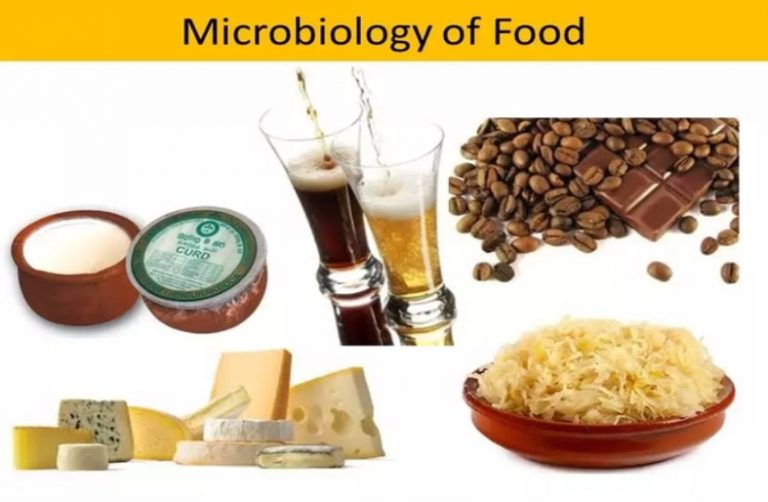Molds are important in food because they can grow even in conditions in which many bacteria cannot grow, such as low pH, low water activity (AW), and high osmotic pressure. Many types of molds are found in foods.6,7 They are important spoilage microorganisms. Many strains also produce mycotoxins and have been implicated in foodborne intoxication (see Chapter 28). Some mycotoxins are carcinogenic or mutagenic and cause organ-specific pathology, such as hepatotoxic (liver toxicity) or nephrotoxic (kidney toxicity). Many are used in food bioprocessing. Finally, many are used to produce food additives and enzymes. Some of the most common genera of molds found in food are listed here (also see Figure 9.1).
- It is widely distributed and contains many species important in food. Members have septate hyphae and produce black-colored asexual spores on conidia. Many are xerophilic (able to grow in low AW) and can grow in grains, causing spoilage. They are also involved in spoilage of foods such as jams, cured ham, nuts, and fruits and vegetables (rot).
- Some species or strains produce mycotoxins (e.g., Aspergillus flavus produces aflatoxin). Many species or strains are also used in food and food-additive processing. Asp. oryzae is used to hydrolyze starch by α-amylase in the production of sake. Asp. niger is used to process citric acid from sucrose and to produce enzymes such as β-galactosidase.
- Members are septate and form dark-colored spores or conidia. They cause rot in tomatoes and rancid flavor in dairy products. Some species or strains produce mycotoxins (Alternaria toxin). Species: Alternaria citri. 3. Fusarium. Many types are associated with rot in citrus fruits, potatoes, and grains.
- They form cottony growth and produce septate, sickle-shaped conidia. They produce mycotoxins: fumonosins, zearalenone, tricothecenes, and dexoynivalenol (DON). Species: Fusarium verticillioides, Fus. graminearum, Fus. proliferatum, and so forthRead More About: khatrimaza
Lastly comment
Yeasts are important in food because of their ability to cause spoilage. Many are also used in food bioprocessing. Some are used to produce food additives. Several important genera are briefly described next.
If You Need More Information: forexinghub.com
Read more about this website: ikgrand.net

